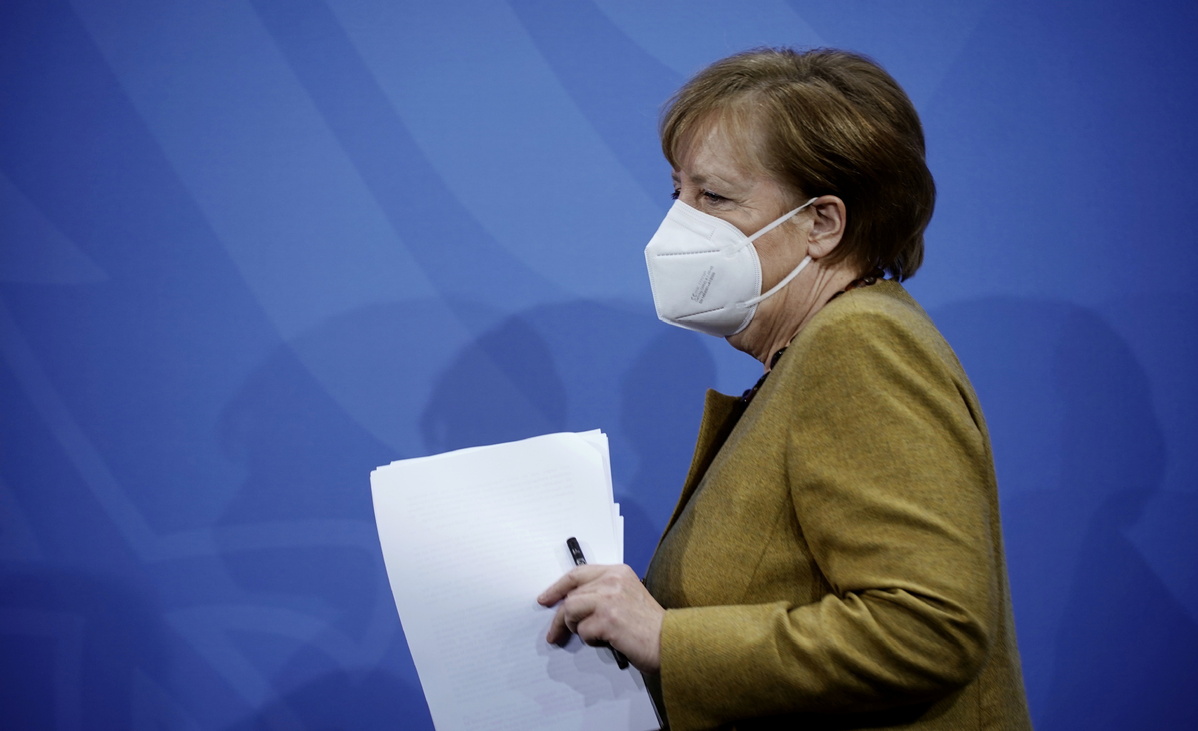Germany extends, tightens anti-virus measures to end of January


BERLIN - German federal and state governments agreed on Tuesday to extend the measures against COVID-19 until the end of January, as well as to impose even stricter contact restrictions.
For districts where more than 200 people per 100,000 inhabitants have been newly infected within seven days, the federal states will limit citizens' movement in a radius of 15 kilometers around their residence, unless there is a valid reason, according to the agreement.
In addition, the agreement requires people to limit their social life and stay at home to the greatest extent. Contact at private meetings will be restricted to just one other person not living in the same household. Previously, the size of private gatherings was limited to no more than two households of five people.
In response to the COVID-19 pandemic, Germany has already closed all nonessential shops and services. Schools are largely closed and students are taught through distance learning. Employers are encouraged to allow employees to work from home. These measures were originally planned to last until Jan 10.
At a press conference after the consultation meeting, German Chancellor Angela Merkel said that the COVID-19 variant which emerged recently presents a "new special situation". It spreads rapidly and could lead to more infections, for which extra care must be taken, she said.
According to the agreement, the three months ahead will still require considerable patience and discipline on everyone's part in Germany, because winter months favor the virus spread and the vaccination will only have a dampening effect when a larger part of the younger population has also been vaccinated.
Germany launched its vaccination campaign at the end of last month, with priority given to people aged over 80, people in elderly and care facilities, and frontline health care workers.
Also on Tuesday, Germany's disease control agency Robert Koch Institute reported 11,897 new infections in a 24-hour span, raising the country's total confirmed cases to 1,787,410. The number of coronavirus-linked fatalities rose by 944 in 24 hours to 35,518.
Due to previous public holidays, there may have been delays in testing and reporting, said Robert Koch.
As the world is struggling to contain the pandemic, vaccination is underway in Germany and some other countries with the already-authorized coronavirus vaccines.
Meanwhile, 232 candidate vaccines are still being developed worldwide - 60 of them in clinical trials - in countries including Germany, China, Russia, Britain and the United States, according to information released by the World Health Organization on Dec 29.
































